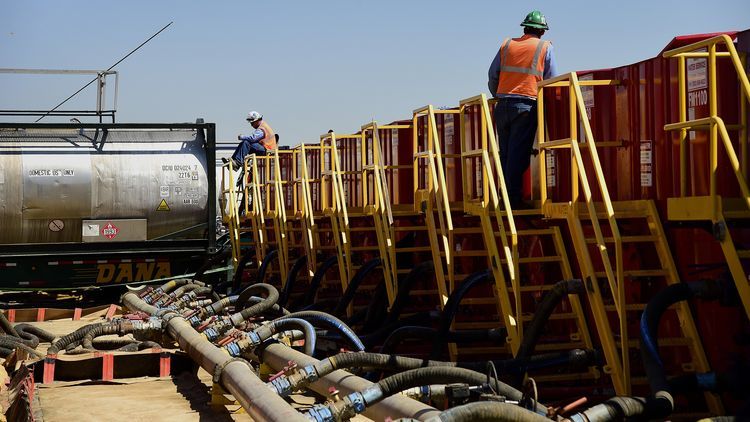
A High Court judge is deciding whether an injunction obtained by energy giant Ineos prohibiting unlawful activities such as trespass or obstruction at its shale gas sites should be continued.
Ineos wants Mr Justice Morgan to extend the existing order, but environmental campaigners say it is both “unprecedented” and “draconian” and are urging the judge to discharge it.
He will hear argument on complex areas of the law from the opposing sides during a three-day hearing in London.
Mr Justice Morgan made an order against “persons unknown” and two named individuals in September. It was made on an interim basis pending the current proceedings.
After hearing the latest submissions relating to the injunction, the judge will rule on whether it should remain in place until the matter is aired fully at a trial.
Ineos Shale is involved in exploratory work such as geological surveys in the East Midlands, but not any hydraulic fracking.
A number of protest groups have been launched to fight fracking, while Greenpeace and Friends of the Earth also campaign against the technique of recovering gas and oil from shale rock.
In September, the judge rejected argument that the potential impact of the injunction upon the human rights of those wishing to protest was a “knock-out blow” against it.
He said it was appropriate for the court to intervene and renewed the order, initially granted in July, with modifications.
In July, Tom Pickering, operations director of Ineos Shale, said the injunction was a “pre-emptive” move based on direct action taken against other shale gas operators such as Cuadrilla, Dart Energy and Third Energy as well as against the firm’s own supply chain.
Campaigners claim it will seriously limit the right of people to protest against the activities of fracking companies and those linked to them.
Environmental campaigner Joe Boyd is challenging the injunction at the latest hearing.
Mr Boyd, represented by law firm Leigh Day, is arguing that the injunction is unlawful as it has a substantial impact on the rights of those wishing to protest against the drilling for shale gas across the UK and that Ineos “did not produce the evidence justifying such a broad court order”.
Leigh Day solicitor Rosa Curling said: “We believe the terms of the interim injunction breach Articles 10 and 11 of the European Convention on Human Rights, which guarantee the right to freedom of expression and freedom of association.
“If this pre-emptive injunction is allowed to stand, our rights as citizens of the UK to engage in peaceful protests will be significantly curtailed.
“The right to protest is a vital part of our democracy. Our client is fighting against this injunction to ensure that local people, citizens and campaigners retain their right to hold peaceful protests against the fracking industry and those involved in it.”
Alan Maclean QC, for Ineos and a number of individuals, told the judge it was accepted that shale gas extraction “is a contentious issue, and one on which opinions are divided”.
The merits of shale gas extraction was not a matter for the court to determine, he said.
The application was for “interim pre-emptive injunctive relief in relation to various sites in which the claimants have various property rights, and against unlawful behaviour aimed at disrupting the claimants and associated third parties from carrying out their lawful activities”.
Mr Maclean told the judge in written argument: “Shale gas extraction is a lawful commercial activity, and the claimants have a right to carry out those activities without risk of unlawful interference.”
The order sought was to “prohibit unlawful activities on private and public land”.
Mr Maclean said it had always been the position of the claimants that “they do not seek to injunct lawful activity”.
He added: “The claimants respect the fact that members of the public have a right in this free and democratic society to protest lawfully if they so wish.”
It was no part of the claimants’ agenda to “seek to stifle the lawful exercise of such rights”.